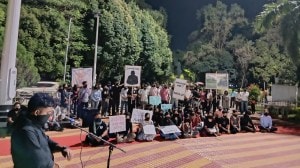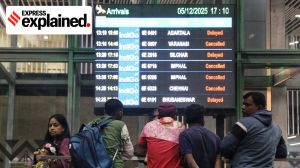As Dhanbad votes today in high-voltage clash, why many have decided to boycott the elections
At least a dozen villages in the Jharkhand Lok Sabha seat say they are not going to vote because of the administration’s apathy to their demands
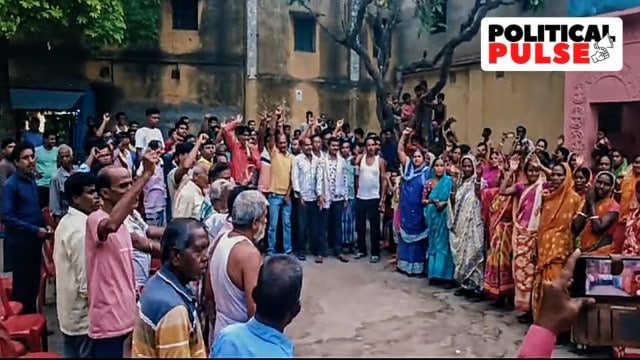 Villagers of Sindri Basti, Jharkhand, are boycotting Lok Sabha elections due to lack of clean water caused by mining.(Express Photo)
Villagers of Sindri Basti, Jharkhand, are boycotting Lok Sabha elections due to lack of clean water caused by mining.(Express Photo)As the Lok Sabha election season rolls towards its denouement, a group of villagers in Gopinathpur, more than 60 km from Dhanbad city in Jharkhand, are busy discussing what led them to issue a call to boycott the polls. Lack of clean drinking water, they say in unison.
For a village surrounded by four collieries, constant mining has led to the depletion of groundwater and despite having a solar-operated water pump there is no water to pump. The piped water supply also does not reach the majority of the 5,500 residents of the village. The village’s deputy mukhiya, Vishwanath Bawri, says the village depends on an abandoned mine more than a kilometre away to meet its drinking water needs. “It is extremely dangerous and the water is also not clean, but we have no other option. Despite several requests, our pleas have fallen on deaf ears. We are not voting this time,” Bawri says, adding that villagers have informed the local Egarkund Block Development Officer about their issues and decision to boycott the election.
Gopinathpur is not an isolated case. In the Dhanbad Lok Sabha constituency that votes on Saturday, at least a dozen villages spread across the seat have issued poll boycott calls to attract the attention of administrators and politicians to their problems — from a lack of drinking water and roads to problems with rehabilitation connected to development projects.
Dhanbad is witnessing a high-pitched battle between the Dhulu Mahato of the BJP, which has replaced three-time MP Pashupati Nath Singh who won by 4.86 lakh votes in 2019, and the Congress’s Anupama Singh. Though villagers spread across the constituency are talking about not voting, Jharkhand’s Chief Electoral Officer (CEO) K Ravi Kumar tells The Indian Express, “Our officers have spoken to them and there seems to be no problem and have appealed to them to vote.”
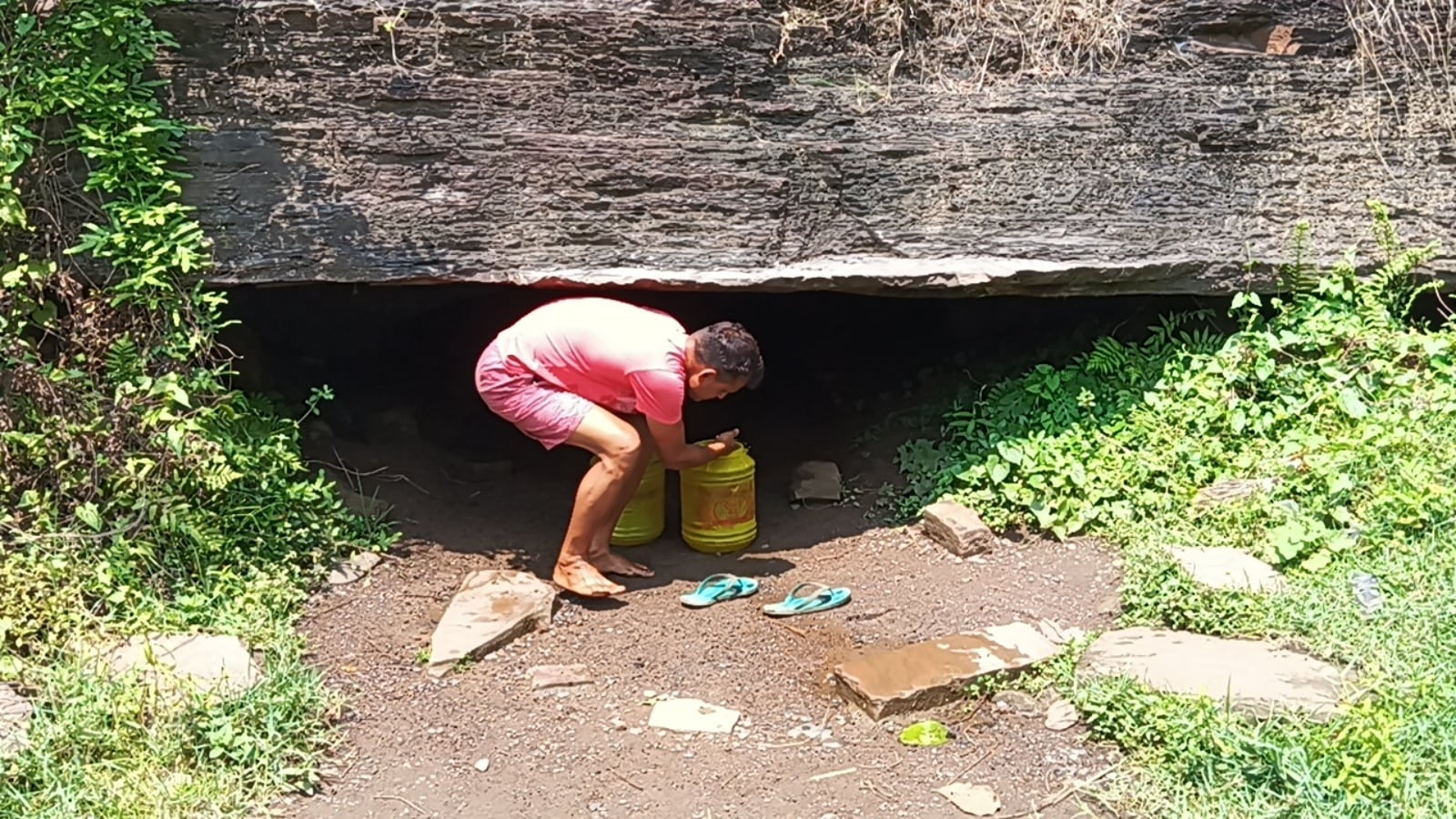 For a village surrounded by four collieries, constant mining has led to the depletion of groundwater and despite having a solar-operated water pump there is no water to pump. (Express Photo)
For a village surrounded by four collieries, constant mining has led to the depletion of groundwater and despite having a solar-operated water pump there is no water to pump. (Express Photo)
Around 4 km from Gopinathpur, residents in the village of Dudhiapani have also submitted a letter calling for a boycott of the election. Rinku Devi who married into a family here 10 years ago says a day has not passed since she moved here that she has not worried about fetching water early in the morning. “The hand pump gives iron heavy water which is not fit for drinking. We have to beg for water in nearby hard coke factories or else find it from somewhere else. The water tower is not functional. What do we do if we don’t boycott the polls? How will the government hear us?” she asks.
Both Gopinathpur and Dudhiapani come under the Nirsa Assembly segment of Dhanbad. Its former MLA Arup Chatterjee of the Marxist Coordination Committee tells The Indian Express, “These two areas are dry zones so despite deep borings there is no water. A permanent solution in the form of the Nirsa-Gobindpur water supply scheme is being implemented, which should be completed in another three years.”
Around 50 km away in the Sindri Basti area of Jharia, locals are angry because of the failure of successive governments to rehabilitate and resettle those whose land was acquired for the Sindri fertiliser plant, which was inaugurated by Prime Minister Narendra Modi on March 1. That is why they have decided to give the elections a pass.
More than 80% of Sindri Basti’s 7,000 residents belong to the SC, ST, and OBC communities and have been protesting since last week. Jharia Circle Officer Ram Suman Prasad who visited the area to speak to the residents on May 19 says, “Theirs is a legacy problem and complaints of lack of resettlement and rehabilitation in view of the land acquisition 75 years ago. I tried to resolve their immediate problems such as issuing caste and income certificates.”
While government sources say that the original residents were compensated when the land was acquired, locals dispute the claim. “We do not have land titles and we have filed a petition in the Deputy Commissioner’s court which is ongoing,” says Bhakti Pada Paul who is spearheading the protest. “Residents struggle to prove their caste on paper. Pipelines have been laid down but there is no water and the residents fetch it from surrounding wells, nearby ponds etc. There is a struggle for basics.”
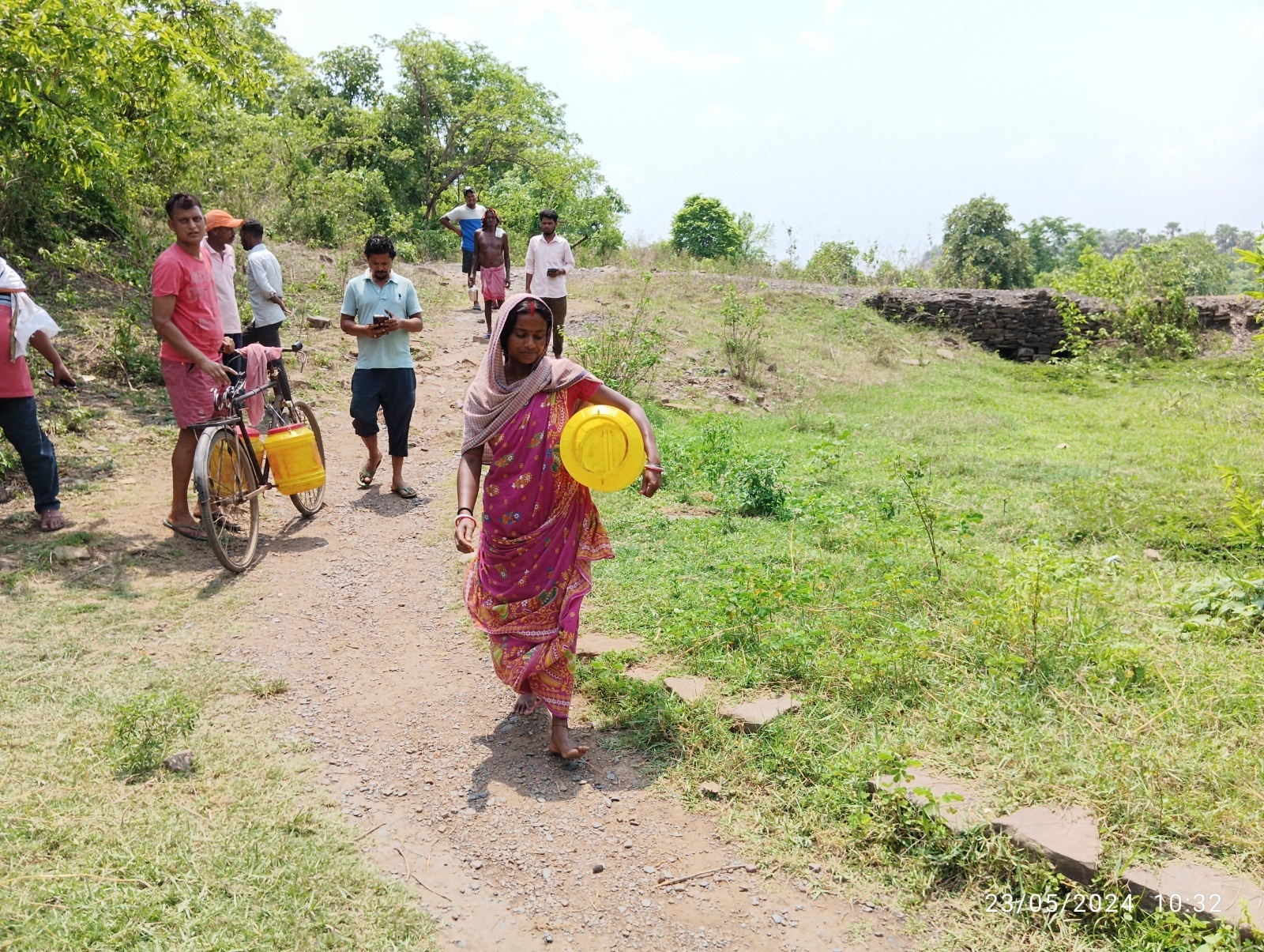 The everyday life of Pushpa Bauri in Gopinathpur village. (Express Photo)
The everyday life of Pushpa Bauri in Gopinathpur village. (Express Photo)
A few kilometres from Sindri Basti, resentment against the Bokaro steel plant has been simmering in 19 “villages” that are part of Bokaro district but come under the Dhanbad Lok Sabha constituency. In a petition dated April 29, the voters of the area said they would boycott the elections because six of the 19 village panchayats had not been formed and as a result “they are being deprived of all the schemes provided by the state and central government”. While the residents claim it is their land, district officials say a survey has indicated that the 60,000 people in these “villages” live on land that the Steel Authority of India Ltd (SAIL) bought from their ancestors and hence they cannot be accorded with panchayat status.
“So either the government reaches an agreement with the SAIL or they fight the case in the court without which there is no solution and the residents will be left in the lurch as they will be devoid of several government schemes,” a high-level government official tells The Indian Express.
- 01
- 02
- 03
- 04
- 05








